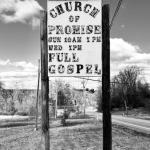The Power of Prayer
I want to explore in my second post this week’s prayer. I love the idea of prayer and how it connects us to something greater.
Wesley on Prayer
John Wesley emphasized the importance of prayer in a Christian’s life, stating that “God does nothing but by prayer, and everything with it.” He believed that prayer should be a continual practice, reflecting a loving attitude towards God and a desire to please Him.
In his sermon on the Lord’s prayer, Wesley offers these thoughts:
When therefore we pray, that the will of God may “be done in earth as it is in heaven,” the meaning is, that all the inhabitants of the earth, even the whole race of mankind, may do the will of their Father which is in heaven, as willingly as the holy angels; that these may do it continually, even as they, without any interruption of their willing service; yea, and that they may do it perfectly, — that “the God of peace, through the blood of the everlasting covenant, may make them perfect in every good work to do his will, and work in them all “which is well-pleasing in his sight.”
In other words, we pray that we and all mankind may do the whole will of God in all things; and nothing else, not the least thing but what is the holy and acceptable will of God. We pray that we may do the whole will of God as he willeth, in the manner that pleases him: And, lastly, that we may do it because it is his will; that this may be the sole reason and ground, the whole and only motive, of whatsoever we think, or whatsoever we speak or do.
Here, Wesley is challenging all humanity to obey God. Wesley is envisioning a world where every person, without exception, actively and willingly follows God’s directives. When we are in constant dialogue with God, we learn to listen better to what these directives are. I will look at this more closely in the next section.
Contemplative Prayer
There are many types of prayer, but my exposure has been with contemplative prayer, which often looks like prayer, reading, mediation and contemplation.
There are four spiritual aspects:
- Prayer as a way to cultivate mindfulness and presence.
- Prayer as a tool for emotional healing and release.
- Prayer as a means of connecting with a sense of purpose and meaning.
- The importance of faith, and belief in prayer.
Prayer really is a conversation, I like to think of it how I engage with my clients, often praying for them before, sitting mindfully and contemplatively during and praying after. Listening is an active process. When we tie in the notion of contemplation and meditation into our prayer experience, we engage in the active listening I teach my couples in couple therapy. Asking God for guidance and direction is only one part of the question. Responding back to God with something like, “God you are asking me to, be or feel x” can be other side of the prayer experience. Or in the hardest of prayers, prayers for healing, sometimes it is understanding that our wishes are not the central importance here, that the conversation is between the sick or dying one and God, and sometimes healing is death. “God, heal my loved one, but if this time is now, then be with them as they journey with you to the end.”
Practical Tips for Deepening Your Prayer Practice
I have been a Christian in some way my entire life, I never had a singular “saved” moment. I have been actively engaged in some sort of contemplative prayer, and I have found that it is truly a journey and a discovery of self, others and God. Practically speaking, let us consider some steps you can take to deepen your practice.
1. Set aside dedicated time for prayer.
When I was 18 through 20, it was chapel and rosaries in the morning, chapel in the afternoon, rosaries in the evening and evening prayer before bed. Now, it is sitting in my easy chair reading the news, praying, running, praying and going to work and praying. Prayer can happen anywhere and anytime. What is important is that it is intentional.
2. Experiment with different forms of prayer.
This could be a whole post in itself. But be creative, and do not limit yourself to the Christian tradition. Christians are rather boring and long winded when it comes to their prayers. Explore and find what works for you.
3. Use visualization and affirmations.
Here, Eastern forms of meditative practices will really enhance your prayer practice. In the west, Christians are known for their use of Centering Prayer or lesser known Taizé prayer, both of which take their direction from the eastern traditions.
4. Find a prayer partner or group.
In my other post this week, I talk about corporate worship and the reason gathering in groups is important. The Holy Spirit can move through as a group and move us to action. I am reminded of the Acts 2 Church and other Church movements that started with just a handful of people. Praying with someone or a group can hold you accountable spiritually, mentally and emotionally.
5. Practice listening after you pray.
As noted above, prayer is an active process, and it is more than the words we say, it the voice of God and the movement of the Holy Spirit that we hear that completes the prayer.
Prayer is personal and looks and feels different for each person and each tradition. There is no right way or wrong way to pray.
In Closing
Let’s reignite our understanding of prayer’s potent force and vital role. I challenge you to take action and embark on, or enhance, your own prayer experience. Your experiences and questions are valuable. Let this inspire you: “More things are wrought by prayer than this world dreams of.” (Alfred Lord Tennyson) Now, answer this: “What specific steps will you take to actively utilize the power of prayer in your life?”

















